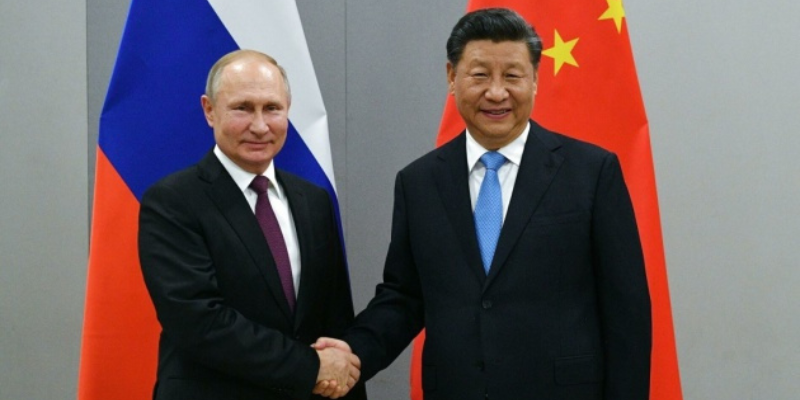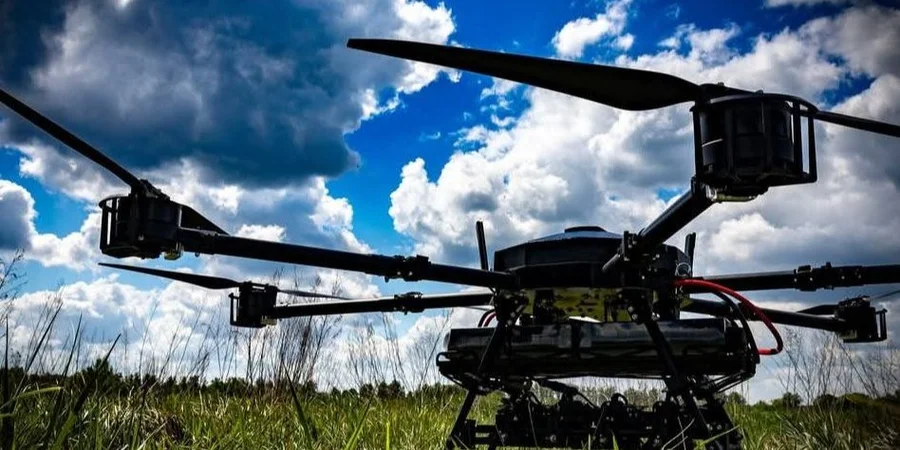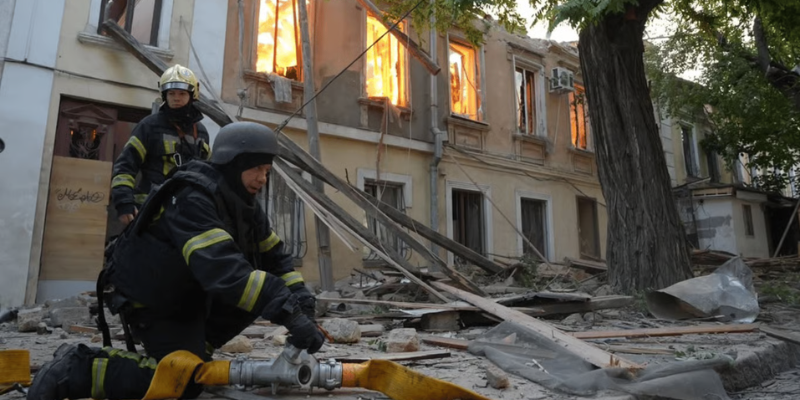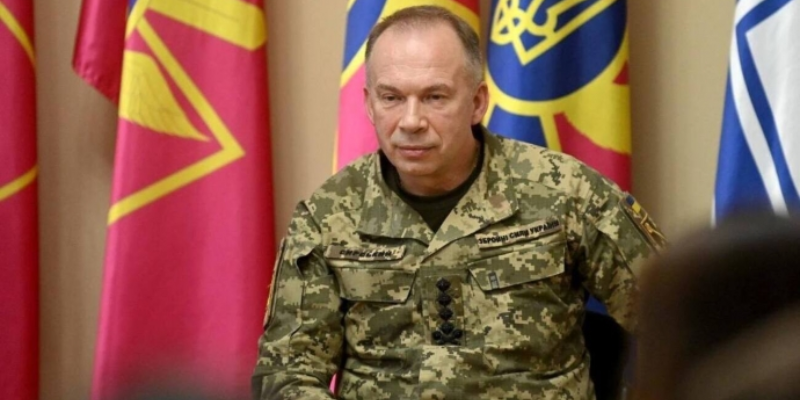Ukrainian Intelligence: China, Iran, North Korea quietly bolster Russia’s war effort in Ukraine

Ukrainian Military Intelligence has revealed that China, Iran, and North Korea are all playing covert but significant roles in sustaining Russia’s military campaign against Ukraine.
In particular, China is quietly supplying Russia’s military-industrial complex with materials essential to waging war in Ukraine, including gunpowder, special chemicals and manufacturing equipment, according to Ukraine’s Foreign Intelligence Service.
In an interview with state-run news agency Ukrinform, Oleh Ivashchenko, head of the intelligence service, said Ukraine has verified evidence that 20 Russian defense plants have received Chinese-origin goods specifically designated for military use. These shipments reportedly include gunpowder, specialized chemicals, and high-precision manufacturing machinery essential for the production of weapons and ammunition.
Ivashchenko noted that since 2024, Ukraine has recorded at least five cases of aircraft-related cooperation between the two countries, including shipments of spare parts and technical documents. Additionally, six additional instancesof special-use chemicals to Russian facilities were recorded.
Most concerning, he said, is that as of early 2025, roughly 80 percent of the key electronics in Russian drones originated in China. These components often reach Russia through complex evasion tactics such as, relabeling, falsified documentation, or routing via shell companies in third countries.
Beyond Chinese involvement, Iran continues to supply Russia with Shahed-series kamikaze drones, which have become a fixture in the Kremlin’s airborne assault strategy. Ukrainian officials also assert that Iran has provided technical advisers and drone-production expertise, enabling parts of the drone assembly to be localized in Russia.
Meanwhile, North Korea has reportedly transferred large quantities of artillery shells and ballistic missiles to Russia, with several battlefield recoveries and projectile remnants confirming the use of DPRK-made weaponry.
Ukrainian and Western intelligence agencies believe Pyongyang is receiving fuel, food, and technical assistance from Moscow in turn. The mounting evidence of this trilateral support challenges the effectiveness of existing international sanctions regimes and raises urgent questions about enforcement and accountability on the global stage.
SOURCESymbolic number of the Day
Ukraine captures 971 Russian troops during Kursk offensive, a region Putin claims has been recaptured
Ukrainian forces took 971 Russian soldiers captive during their Kursk offensive into the Russian region, held from Aug. 6, 2024, to May 25, 2025, according to Ukrainian military officials. The campaign, carried out in the Kursk region, was described as an “unexpected and asymmetric move” that helped replenish Ukraine’s exchange pool for prisoner swaps. Defense officials say it’s the most effective operation yet for capturing enemy troops. Despite being outnumbered, Ukraine’s military continues offensive actions in the area, vowing to fight for every soldier and every inch of land.
Ukrainian forces have also made an incursion into the neighboring Belgorod region and video footage has shown their Air Force launching precision strikes on Russian military bases there.
SOURCEWar in Pictures
Russian overnight attack injures 34 civilians, damages over 100 homes near Kyiv
The number of innocent civlians injured in a Russian overnight airstrike on the Kyiv region has risen to 34, including seven children, according to local officials. The attack, which hit multiple residential areas early on May 25, damaged or destroyed at least 115 single-family homes.
Mykola Kalashnyk, the regional head of the regional military administration,, said 19 of the injured are being treated in hospitals, with seven in mild condition and 12 in moderate condition. There is no immediate threat to their lives, he added.
The town of Makariv saw particularly severe damage, with 39 homes either destroyed or heavily damaged and the entire street obliterated from aerial attacks.. Other affected areas include the Bucha, Fastiv and Bila Tserkva districts, where food warehouses, schools, vehicle garages and household buildings were also hit.
In the village of Markhalivka, 22 homes were damaged—most of them beyond repair.
SOURCEVideo of the Day
Ukrainian intelligence drones destroy Russian military fuel train in Zaporizhzhia region
Ukrainian military intelligence drone operators struck a Russian military train transporting fuel on occupied territory in Zaporizhzhia region, according to the Defense Intelligence Directorate. The strike took place on May 24 along the railway section between Verkhniy Tokmak, Molochansk, and Fedorivka. The drone unit delivered precise hits on the train while it was in motion.
At least three fuel tankers were destroyed, the agency reported. Footage released by military intelligence shows the burning railcars following the strike. The attack disrupted Russian logistical routes supplying occupying forces in Zaporizhzhia and Crimea, Ukrainian intelligence said.
SOURCEInstitute for the Study of War (ISW) report

Key Takeaways:
- Kremlin ruler Vladimir Putin is leveraging long-range strikes against Ukrainian cities, aggressive rhetorical campaigns, and excessive pessimism in the West about the battlefield situation in Ukraine in a multi-pronged effort to degrade Ukrainian morale and convince the West that a Russian victory in Ukraine is inevitable and that supporting Ukraine is futile.
- Russian forces conducted the largest combined drone and missile strike of the war against Ukraine on the night of May 24 to 25.
- Russian Security Council Deputy Chairperson Dmitry Medvedev suggested that Russia will occupy most of Ukraine if the West continues to aid Ukraine.
- The Kremlin is attempting to leverage large strike packages and increasingly aggressive rhetorical efforts to distract from the Russian military’s poor performance during this current stage of the war.
- Russian forces have eliminated the Ukrainian pocket southwest of Toretsk after a four-month-long offensive operation to level the frontline south and southwest of Kostyantynivka in order to set conditions to advance towards the settlement.
- Russian forces would need roughly a century to seize Medvedev’s proposed “buffer zone” at their current rate of advance at the cost of nearly 50 million casualties at current loss rates.
- The Kremlin is also using its bilateral engagements with Ukraine and the United States to maintain the appearance of being interested in peace and delay Western discussion of additional aid to Ukraine.
- Russia’s only real hope of winning this war is to convince the West to abandon Ukraine.
- Russian forces recently advanced in Kursk Oblast and near Kharkiv, Chasiv Yar, and Toretsk.
War heroes

In memoriam: Ukrainian officer Dmytro Matviievskyi, a hero of Ukraine’s defense forces
1st Lt. Dmytro Matviievskyi, known by the call sign “Khodok,” was killed in action on Sept. 4, 2024, near the settlement of New York in Donetsk region. He died from fatal injuries sustained during a mission to extract a trapped unit, after his special forces team was ambushed. He was 34.
Matviievskyi was born in the city of Volodymyr in Volyn region. He graduated from the Hetman Petro Sahaidachnyi National Army Academy in Lviv. Passionate about military history, he admired great military leaders of the past and drew strength from his favorite book — the Bible, which served as his moral compass. He enjoyed football, arm wrestling, fishing and hunting.
His military journey began in 2014, when he served as a company commander in the 51st Mechanized Brigade. He later became deputy commander in the 24th Mechanized Brigade. Following the full-scale invasion, he joined the 12th Azov Special Purpose Brigade of the National Guard of Ukraine, where he served in an assault unit.
“Dmytro got his call sign, ‘Khodok,’ back in 2014,” his mother, Olena, said. “One of the commanders in the 51st called him that because he’d go deep into enemy territory alone. While others rested, he struck fear into the enemy. Brave, relentless — that’s who he was.”
For his distinguished service, he was awarded the Commander-in-Chief’s Silver Cross.
“Dmytro had a big heart and an unbreakable will,” Olena said. “He was kind and compassionate, always there for friends and family — especially his younger brother and little son. Joining Azov was a duty he felt deeply, to his country and to future generations. His service demanded strength and spirit, and he had both. He dreamed of peace, of a life surrounded by loved ones. When the moment came, he chose to fight so that such dreams could come true for others.”
Matviievskyi was laid to rest in the village of Verba, in Volodymyr district, Volyn region. He is survived by his mother, son and younger brother.
*Matviievskyi’s story on the Heroes Memorial – a platform for stories about the fallen defenders of Ukraine.
SOURCELatest news
- Zelenskyy urges sanctions after Russia launches large-scale air assault
- Ukrainian officials: Russia ‘categorically’ rejected unconditional ceasefire in peace talks
- EU ambassador to Ukraine says Russians mock US and peace efforts
- Netherlands to send last F-16 fighter jet to Ukraine on Monday
- Republican Congressman: Ukraine should be armed to the teeth, Russian assets should be confiscated
- Trump: Putin wants all of Ukraine, he has gone absolutely crazy







